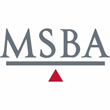Did you find unauthorized or fraudulent charges in your bank account? Did someone steal your ATM Card? Did a cybercriminal steal money from your bank account? The Electronic Fund Transfer Act (“EFTA”) will protect you, but YOU MUST ACT FAST!! What is the EFTA? The Electronic Fund Transfer Act (“EFTA”) is a consumer protection law […]
Minnesota Credit Reporting Problems Attorney

Credit Reporting Problems
Consumers who get behind on their bills have rights. The federal Fair Debt Collection Practices Act (FDCA) prohibits abusive, unfair, and deceptive collection practices by debt collectors. Tarshish Cody PLC law firm accepts consumers seeking representation who would like to schedule a free initial consultation to discuss their specific circumstances. Call 952-295-3935.
Who are Debt Collectors?
A person who works to retrieve money owed on mortgages, medical bills, credit cards, autos, and other debts is a debt collector in the eyes of the law. The occupation of debt collectors can include attorneys, first and third-party collection agencies, and purchasers of debt.
First-party agencies are typically departments within a company that is also the original creditor. Most often, these debt collectors will attempt to collect money for a short time and then refer the debt to a third-party agency.
Third-party agencies are companies not connected with the original debt origination. These debt collectors typically are only paid if they successfully recover all or a portion of the money owed.
Debt-buyers purchase debt from another company usually at a discount and attempt to recover the full amount of the original debt owed in order to make a profit.
If you owe money you are the debtor. Debtors often have legitimate reasons why they are unable to pay a debt in a timely manner. Job loss, health issues, and unforeseen circumstances contribute to the circumstances that prevent a debtor from making full and timely payments. Remember that debtors have rights including the right to be free from harassing debt collectors.
The Fair Debt Collection Practices Act (FDCPA) passed by congress is enforced by the Federal Trade Commission (FTC). It protects debtors from harassing, abusive, threatening or misleading collection practices. If you believe you have been the victim of these types of illegal collection activities by debt collectors, you can call the law firm of Tarshish Cody PLC to discuss how to protect your rights and sue for damages when necessary. Call 952-295-3935.
Specific acts prohibited by debt collectors are:
- Abusive, harassing, or threatening conduct.
- Debt collection attempts at inconvenient and unreasonable hours such as prior to 8 A.M. and later than 9 P.M.
- Debt collection attempts directly to the debtor who is represented by an attorney.
- Attempts to collect a debt at a place of employment after being informed that is off limits.
- Attempts to collect debts by talking to employers, relatives, neighbors, etc.
- The use of threatening language.
- The use of profane or obscene language, including racial epithets.
- The false reporting of credit information or a threat to do so.
- Any threat of violence.
- After a debt has been formally disputed, attempts collect are prohibited except with proper verification to the debtor.
- Falsely representing a debt collector as from a government agency or court.
- Attempts to collect taxes, interest, or collection fees, not legitimately part of the debt owed.
- Debt collectors who misrepresent who they are.
- Filing a collection lawsuit in a jurisdiction distant from the debtor’s residence.
- False statements used to gather information.
- Continued contacts with a debtor after written notification to cease those activities.
- Threats of imprisonment or arrest by claiming the debtor has committed a crime.
- Falsely representing the character, amount or legal status of a debt.
- Claims to take illegal actions against a debtor.
- Mailing postcards to a debtor.
Call our attorneys at Tarshish Cody PLC who will explain these rights:
- Apply to reduce or eliminate remaining debt.
- File for damages of up to $1,000.
- Clean a consumer’s credit record of negative reports.
- File for attorneys’ fees paid by the debt collector.
The law firm of Tarshish Cody PLC accepts FDCPA and Telephone Consumer Protection Act (TCPA) complaints. If you have been harassed by debt collectors, call our office and schedule a free consultation. We welcome your call today at 952-295-3935 (or fill out the free case evaluation form below) to help you through the legal issues of your case.
Start Your Credit Reporting Case Evaluation
From The BlogView All Consumer Law Posts



Attorneys Practicing In This Area
Staff Supporting This Area
Julie Rosales











